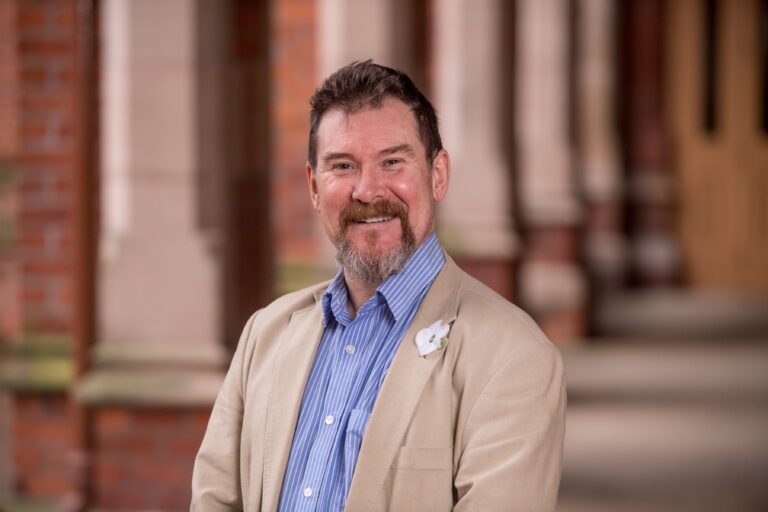
Just(ice) Transformations in the Anthropocene: Conflict Transformation and the Role and Responsibility of Academia in Democratically Navigating Pathways to Post-Carbon and Post-Growth Futures
John Barry, Professor of Green Political Economy in the Centre for Sustainability, Equality and Climate Action at Queens University Belfast, will give his presentation on the need to bring together the literature on conflict transformation and energy transitions and examine the role and responsibility of academia during times of a planetary crisis.
Email: j.barry@qub.ac.uk
Twitter: @ProfJohnBarry
Abstract
This presentation begins from the proposition that the planned retreat from a carbon-based economy is an essential component of addressing the root causes of our planetary crisis. The climate science within the context of a potential ‘tipping point’ within many countries on addressing the climate and ecological emergency might be said to suggest that the transition away from carbon energy is inevitable. But how just, inclusive and equitable this transition might be is not guaranteed. With its origins in the trades union movement in the 1970s, the policy strategy of a ‘just transition’ – as outlined for example in the preamble of the 2015 Paris Climate Accords and the 2018 Silesia Declaration – and allied ideas such as ‘eco-social transformation’, a ‘green new deal’ and the divestment movement – stands as an energy transition pathway which can address some of the hard political and distributive issues of the transition to a low carbon economy. A Just Transition frame can address head on dominant and comfortingly narratives ‘win-win’ and ‘greening business as usual’. The reality is that moving to a low carbon or post-carbon economy and society means the end of the fossil fuel energy system (which includes but goes beyond electricity and transportation but has major implications for the food system for example). This throws up a host of complex issues ranging from the role of the state (national and local) in managing or coordinating the transition, issues of democratic voice and procedure, the opportunities around reframing fossil fuels as carbon resources, to divestment and reinvestment energy strategies. Central to all of these, and something under acknowledged in the literature, is to recognise that conflict transformation will frame and characterise the low carbon energy transition, since while leading to a net benefit to society as a while, this transition will produce ‘winners’ and ‘losers’ in the process. Hence the need to bring together the literature on conflict transformation and energy transitions to further flesh out both the ‘dirty politics of low carbon energy transitions’.
At the same time, we need also to examine the role and responsibility of academia. If we are in a planetary crisis (as all scientific evidence suggests), why do we not witness academia and academics acting as if it is a crisis? How do we explain and understand how and why we, as academics and academic institutions, continue with a more or less ‘business as usual’ approach? What would academic work across teaching, research, outreach and engagement look like if our profession was to rise to the challenge and opportunity of addressing the planetary and related socio-economic and socio-ecological crises we face? Is badging our research with one of the 17 Sustainable Development Goals and a university corporate ‘sustainability plan’ the best we can do? How can we talk, teach and research about ‘just(ice) transitions’ while ourselves stuck or comfortable within non-transitions institutions? This paper is a personal reflection on how academia should transform itself, indeed remake and reimagine itself in the context of the Anthropocene/Capitalocene, and the intersections of the climate and biodiversity crisis with growing inequality and injustice within and between societies. What is our responsibility as trusted sources of knowledge production and dissemination? Should we become more activist oriented and more engaged in informing the public about the causes, consequences and solutions to our worsening predicament as groups like Extinction Rebellion and Faculty for Future suggest? How do we transform academia starting from the difficult assessment that as current constituted universities play a key role in the reproduction of unsustainability? This they do, for example, through maintaining (or in some cases actively promoting) research, development and employment links with extractive and polluting industries and by uncritically teaching unsustainable perspectives and practices, including the ‘common-sense’ positive neoclassical economics perspective on the (ecocidal) pursuit of indefinite economic growth. Yet, as highly resourced and influential institutions, universities have an inherently transformative potential, should those resources be redirected and redistributed to progressive social and ecological ends that challenge, rather than support, our unsustainable political and economic status quo. As workers within these institutions, academics and researchers are therefore faced with a choice: to be agents of this reproduction or to be advocates and activists for radical transformation and change.
Prof. John Barry
John Barry is a father, a recovering politician and Professor of Green Political Economy in the Centre for Sustainability, Equality and Climate Action at Queens University Belfast. He is also co-chair of the Belfast Climate Commission, a member of the Committee on Climate Change’s Economics Advisory Group on Adaptation and Resilience, and member of the Sustainable Future Committee of the Joseph Rowntree Charitable Trust.
What keeps him awake at night is the life opportunities and future wellbeing of his and other children in this age of the planetary crisis, and why it is easier for most people to believe in the end of the world than the end of capitalism and economic growth. His areas of academic research include post-growth and heterodox political economy; the politics, policy and political economy of climate breakdown and climate resilience; socio technical analyses of low carbon just energy and sustainability transitions; and the overlap between conflict transformation and these sustainability and energy transitions. His last book was The Politics of Actually Existing Unsustainability: Human Flourishing in a Climate-Changed, Carbon-Constrained World (2012, Oxford University Press).
